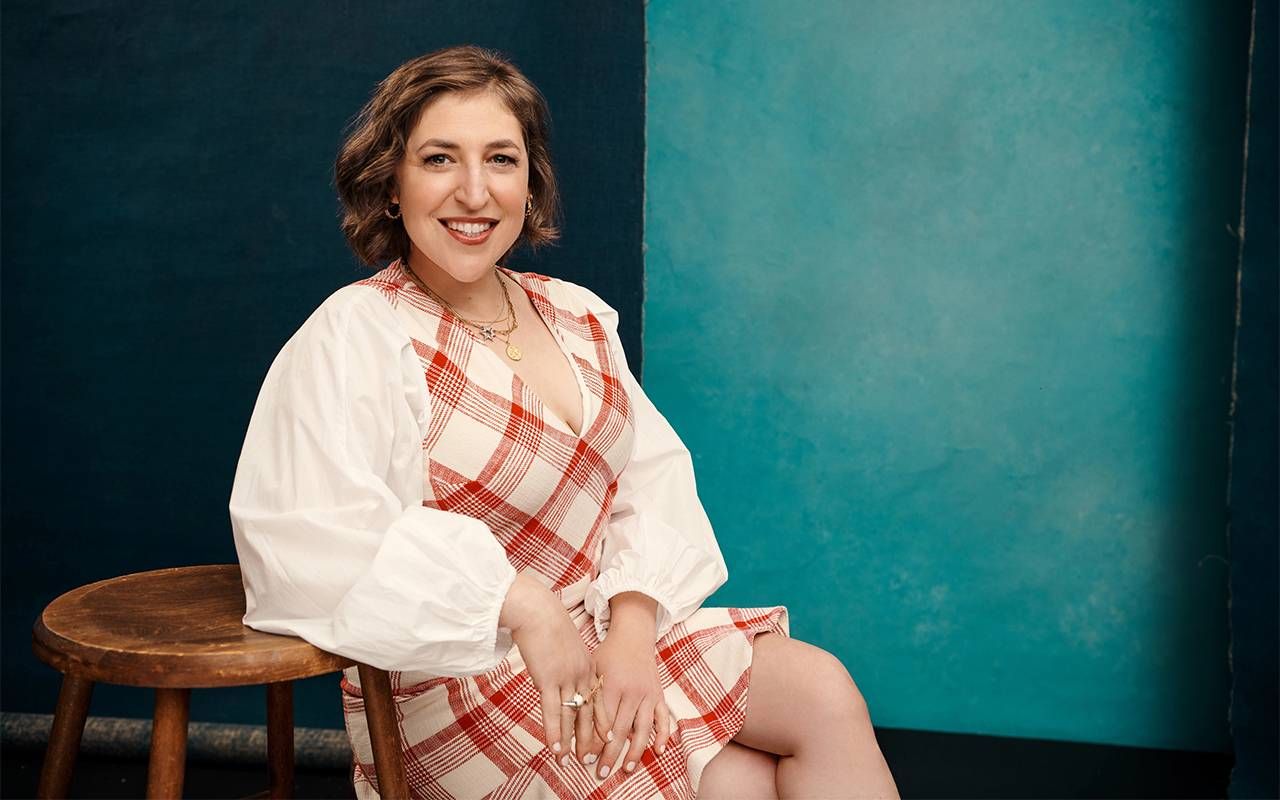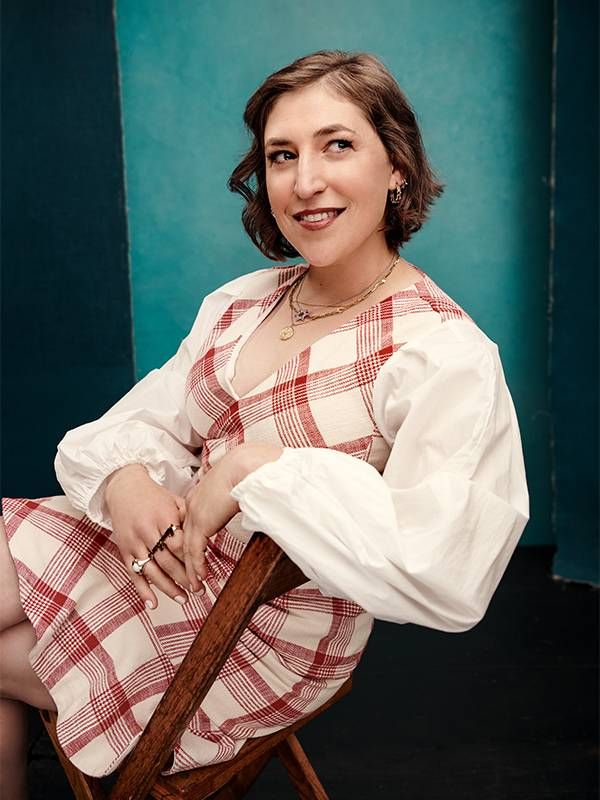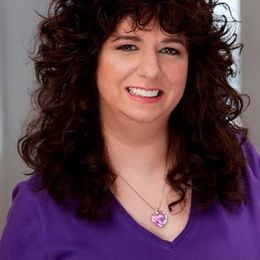Mayim Bialik Raises Her Voice About Mental Health
The actor, podcaster and ‘Jeopardy!’ host shares her mental health journey in hopes of helping others
Mayim Bialik has been quite busy since playing Amy Farrah Fowler on the hit sitcom "The Big Bang Theory." She starred in her own sitcom "Call Me Kat" as the lead character (it was recently announced the series wasn't renewed); she's been doing a podcast called "Mayim Bialik's Breakdown," which talks about mental health, and she's been a host of the long-running TV show "Jeopardy!"

May is Mental Health Month, so in this interview edited for length and clarity, we asked Bialik, 47, to talk with us about her own mental illness, raising awareness, her career and more.
Next Avenue: When did you first begin talking about the fact that you live with depression? Did you hope to help others?
Mayim Bialik: I don't know when I first began talking about my mental health challenges in general.
I think I started talking about some of the challenges particularly surrounding what it was like to be a new mother, and I had a lot of challenges in my pregnancy and also with breastfeeding and things like that. But it really wasn't until I started a podcast — "Mayim Bialik's Breakdown" — during COVID, when so much of my mental health that I felt I had gotten under control felt like it was rearing its ugly head in the face of pandemic and lockdown and anticipatory anxiety and fear and all those things.
"Looking back, I think I had depression for probably a large portion of my teen years and through my 20s."
My partner, Jonathan Cohen, and I started this podcast because we felt like if with all the experience that he and I have had in our lives with therapy, and for me, trying a million different medications, if with all of that knowledge and information I was still struggling so much, imagine people who had no kind of vocabulary for it or experience with it before — how they were struggling. That's why I started to talk about it. But as part of starting this podcast, I found that there were [others], most notably my friend Wil Wheaton, who had been talking very openly about mental health challenges for years. Wil was actually one of the people who inspired me to start [talking about it].
He and I both did work with NAMI (the National Alliance on Mental Illness) and I had used the services of NAMI myself. I had never thought about talking about it. It was really Wil who was so brave and so fearless about it, and I saw how much good he was doing and how important removing that stigma was. And now, I don't feel like I'm quite as comfortable as I want to be. When I hear Wil talk about it, he seems to have a real ease and a real grace, but I hope that I'm getting there.
When did you first have symptoms of depression?
Looking back, I think I had depression for probably a large portion of my teen years and through my 20s. We didn't really talk about it as 'depression.'
I've been seeing a psychiatrist since I was like 16. Back then, psychiatrists did psychotherapy, and some still do, but I didn't get into classical psychotherapy until I was about 20. That's when I think I started understanding better about what diagnoses meant, meaning what the features were. Then once I got into college, I studied neuroscience.
I ended up working in the field of neuropsychiatry or the intersection of neuroscience and psychology. A lot of my knowledge and perspective shifted then.
"Social things are really, really hard for me and have been because of depression, and that can also be because of anxiety."
What were the specific symptoms you experienced? How did you deal with them?
I had, and continue to have, in varying degrees, all of the classic symptoms of clinical depression. There have been times in my life where it has been very difficult to kind of function in terms of basic needs. There are levels of depression where it is hard to get out of bed. It is hard to be motivated to participate in any activities. Social things are really, really hard for me and have been because of depression, and that can also be because of anxiety. Another is losing interest in activities you previously found enjoyable, really not feeling motivated to do anything or participate in anything and sort of that despondency and listlessness — all of those features.
I do happen to be someone who uses work as a drug. I definitely have found ways to be extremely high-functioning even when depressed, which is very interesting. I do also have creative outlets that I use. Now that I have a lot more skills in how to deal with my depression, I can usually spot it and name it really quickly. And then I do have strategies that help me get out of it.
There are people who don't look depressed because they are so functional, and they are so high-achieving. But that doesn't mean it's not depression. It's just a different flavor, as it were.
Living with depression, it's kind of an ongoing journey in that it changes over time. I was put on medication very early. I was having panic attacks — and I don't mean anxiety attacks, I mean panic attacks — when I was in high school. But it didn't really get to the root of the problem.
The way I describe my journey is that I've been put on every medication that there is. I've been on many, many different combinations. I have a lot of negative experiences with medications, and then I have some positive experiences with medications. But consistently going to rigorous therapy is what worked for me — psychotherapy in particular. Cognitive behavioral therapy (CBT) is something that I did not utilize in my teens and 20s, but I do think it's a very viable option for certain kinds of people.
Now that I'm in my 40s, and my kids are out of the young-child phase, my self-care has shifted a lot. I've incorporated a lot more holistic and naturopathic methods to understand my depression; finding what your body responds well to in terms of what you ingest is really important.

Sleep is historically really hard for me. I'm one of those depressed people who does not sleep, meaning sometimes people sleep a lot when depressed, and I kind of have the other side of that problem.
I've been learning — through the podcast and Jonathan's influence — what it means to have sleep hygiene and that actually has made a big shift for me. There's a lot of other things that I took on over the years besides work. Food was one of them — to try and self-soothe — and that was honestly disrupting sleep and then affecting my mood.
I want to give a shout out to the importance — especially for women — of getting appropriate care in terms of hormones and thyroid. Those things are very, very strongly connected to mood. I've had a thyroid condition (autoimmune condition) since I was in my early 20s. Going through menopause has also been a real journey into understanding my mood, and I think that many women are lacking the appropriate support in understanding hormones and the thyroid and the role that those play in mood.
Why did you decide to start your podcast 'Mayim Bialik's Breakdown'? Were you apprehensive at all about speaking regularly about mental illness? Why do you enjoy doing it now and what has the overall response been?
I was very nervous and remain nervous to talk about mental illness, but we have had millions and millions of downloads of our episodes. A tremendous number of the episodes that we do really resonate with people. We get to do our part in putting our own version of goodness out into the world. It's scary to be vulnerable that way, and also, it's incredibly rewarding.
"We're learning different ways to think, different ways to be, and hearing people's experience, that makes you feel not alone."
I'm happy to get to be a voice for people as we all kind of get to learn. That's really what the podcast feels like. We're learning different ways to think, different ways to be, and also just hearing different people's experience, that makes you feel not alone.
Any other thoughts about mental health that you'd like to pass on to our readers?
Getting help is incredibly important. I have lost people. I have had people very close to me take their lives when they thought there was no other option. I like to tell people that if there's that glimmer of thought of 'Should I get help?' you already should have gotten help. It's kind of like they say when you feel thirsty, you already should have had water.
I do believe that everyone can benefit from some level of introspection and reflection. Being able to talk to a therapist and work with a therapist is a human right. It should not be one that is reserved for only the wealthy or only those with insurance, and that's something that I really think we should be ashamed of in this country.
NAMI is a great place to start. I do believe that there is no situation that cannot get better with the right education and resources and support.
Tell us about "Jeopardy!" What have you most enjoyed about it? What have you learned from it? What's the best part of being involved with such an iconic game show?
It's incredible to be involved in such an iconic show. The most fun about "Jeopardy!" is what I get to learn every day when I go to work. I don't know all those answers. I have to pronounce them and say them, but those contestants do know pretty much all those answers. I love seeing all these different personalities of people who have all of this incredible knowledge. It's really a joy.


